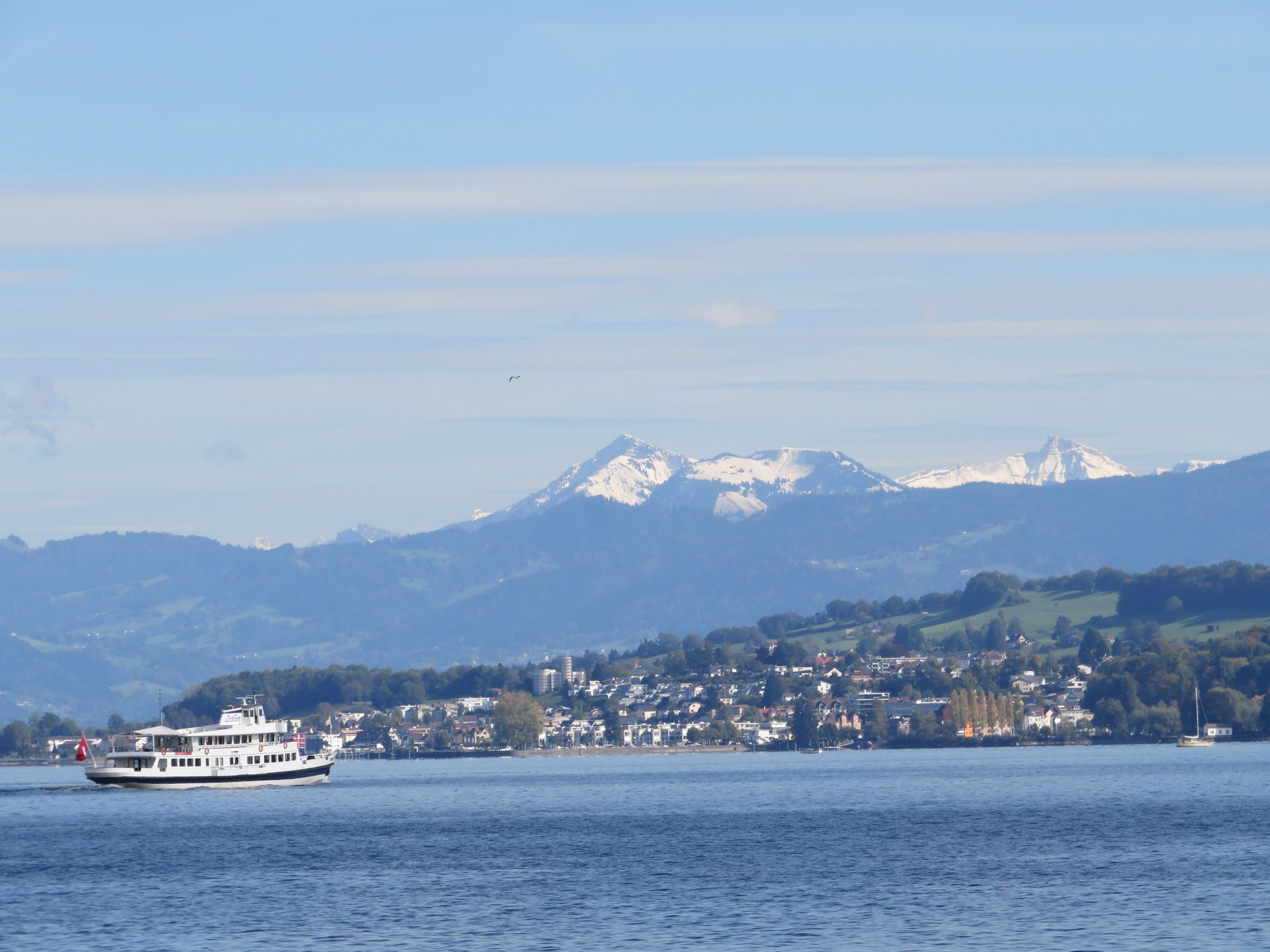12.3. - 22.3.18 Philippines Part One
પ્રકાશિત: 25.03.2018
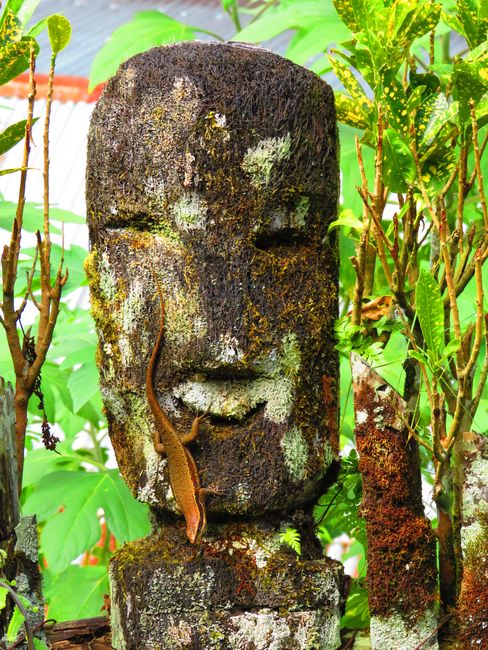
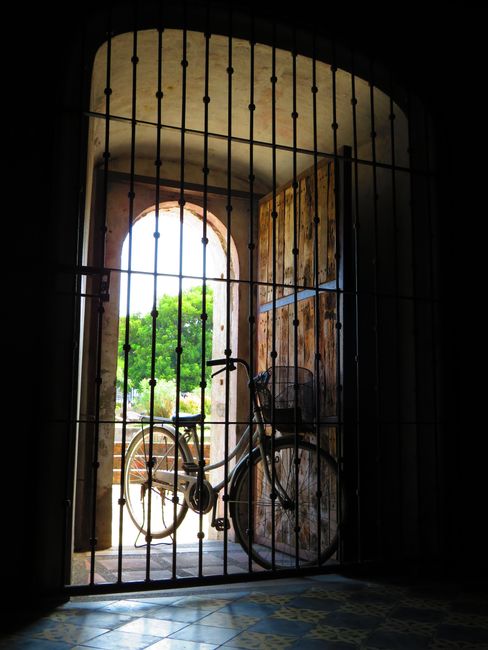
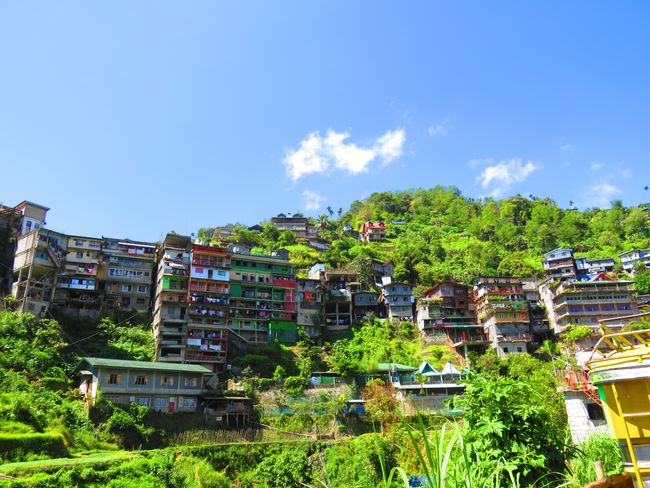
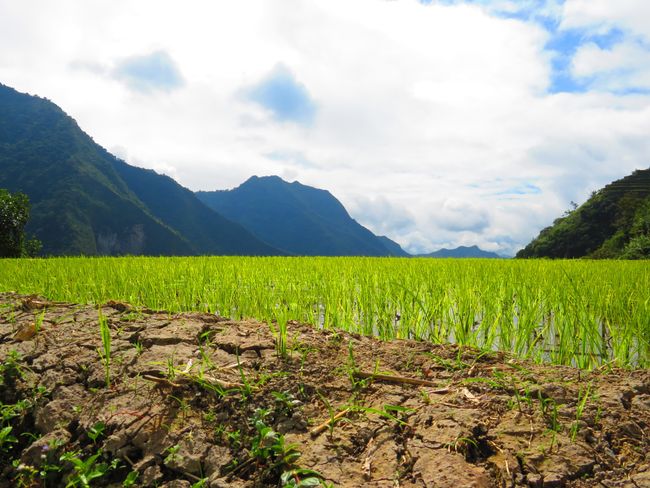
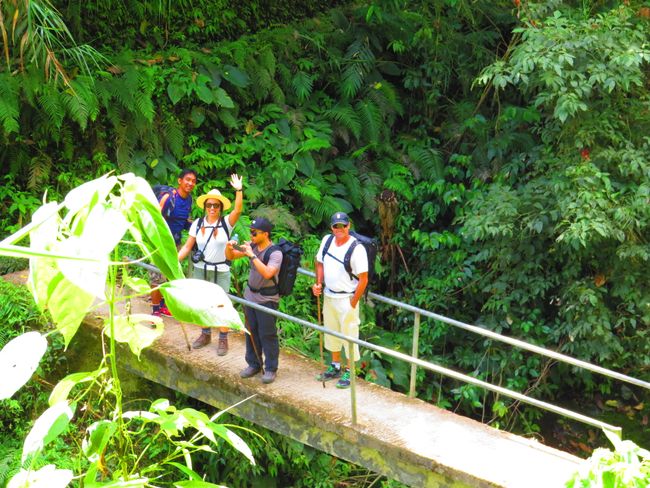
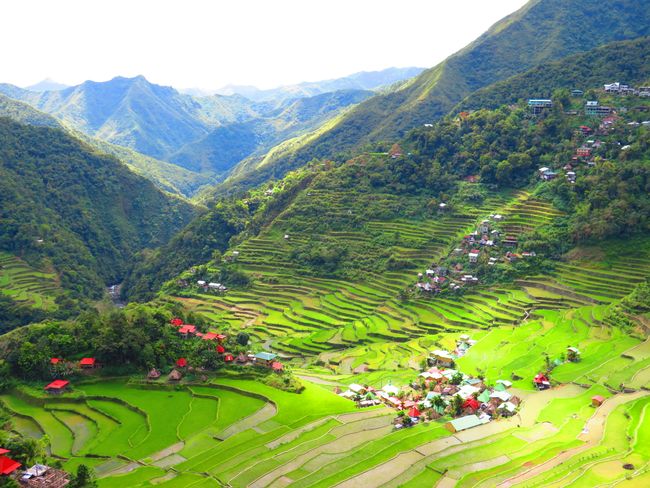
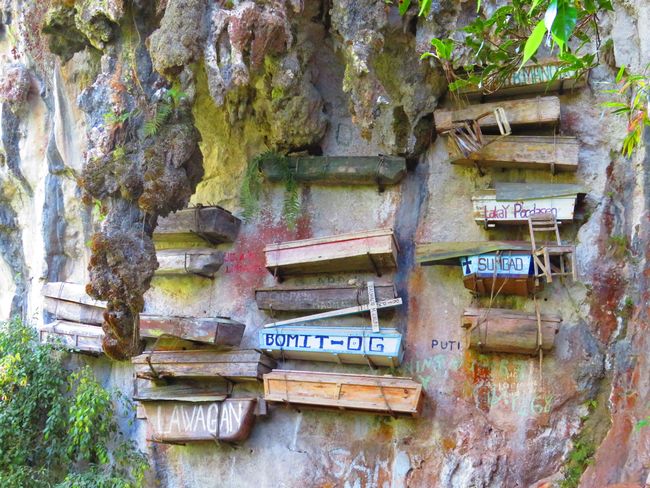
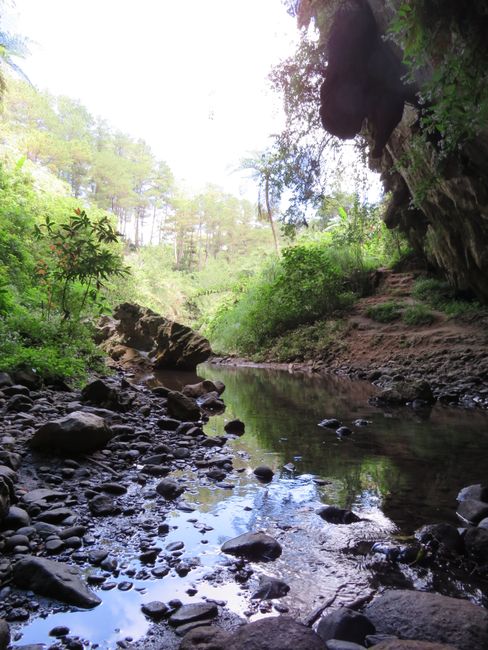
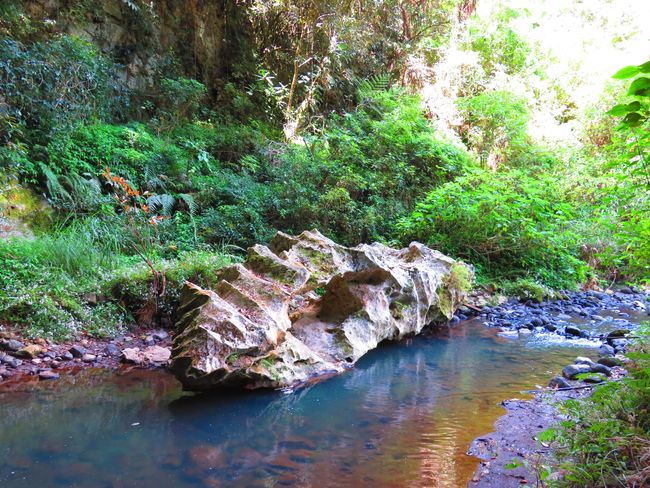
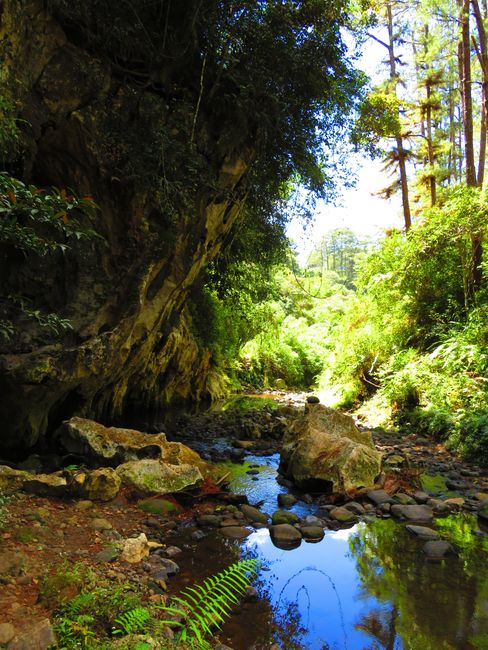
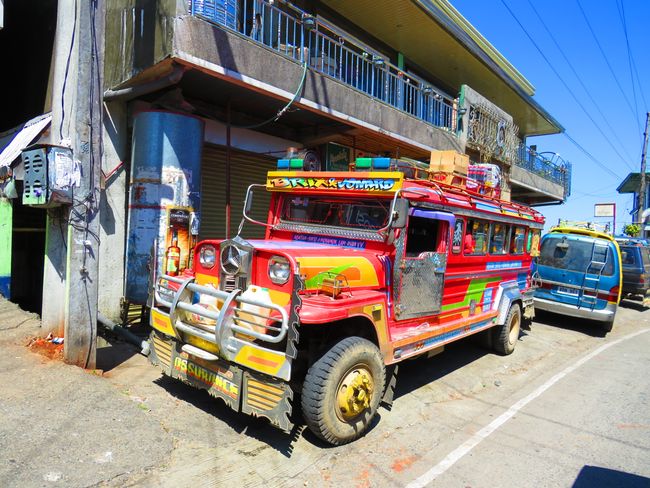
ન્યૂઝલેટર પર સબ્સ્ક્રાઇબ કરો
For understanding: We already booked the trekking tour that awaited us for the next ten days in Switzerland. The tour operator is Intrepid. It is a travel company that is headquartered in Australia and works with tour guides who grew up in the offered holiday countries.
It is 1:30 p.m. when we land in Manila on Monday. We have a two-hour delay and the employee from Intrepid is already eagerly awaiting us in front of the airport. The heat hits us as we leave the building, and we are relieved when we can take a seat in the air-conditioned taxi. We drive to the Kimberley Hotel, where we will meet and get to know all the other participants. The briefing will take place at 6:00 p.m., and we are punctually on site. Our group consists of the following people: Roy from Canada, Brendan from New Zealand, Anna from England, Nicky from England, and Hafiz from Australia. Rupert is 25 years old and our tour guide. The sympathy for the group is given from the beginning, and we are all sure that we will have a good time together.
The next morning, we start early. Departure to Banaue is at 6:30 a.m. While we snake through the morning traffic in a minivan, Rupert tells us interesting facts about Manila and the habits of the Filipino population. He explains to us the importance of rice and that the food between meals is just as important as the break after lunch. The journey to Banaue takes a total of 11 hours, and we are all relieved when we finally arrive.
Banaue has about 21,000 inhabitants and is located 1,200 meters above sea level. We stay at Uyami's Green View Lodge, which is located in the city center. Nicky and I organize a rain jacket in one of the numerous shops, and after a joint dinner, everyone goes to bed early. The next morning, Rupert introduces us to our two other tour guides, Dayton and JR. They will accompany us for the next two days and support Rupert. We start at 9:00 a.m. Since the starting point will be Banaue again, we can leave our main luggage at the accommodation and only carry our day backpack with the necessary utensils for the next two days. The hike takes three hours and leads us to the Ifugao village of Cambulo. The hike is pleasant, and the interpersonal conversations are not neglected. When we arrive at Merry's guesthouse, we check into our rooms. They are small and equipped only with the essentials. After that, our tour guides lead us down to the river, where we spend the next two hours bathing. Then everyone has the opportunity to enjoy a massage. And none of us needs to be told twice. I learn from the masseuse, her name is Josepina, that she was born and raised in Cambulo and will also die here for sure. Her life and work are strict. During the day, she works in the rice fields, and when she can, she earns extra money with massages. The massage course was paid for by the Philippine government. The government wants to give women from remote villages the opportunity to earn more money for their families in this way. I enjoy the massage and the conversation very much. After dinner, we get our UNO cards, and the evening is long and funny.
The next morning, it's time to pack up and put on hiking shoes again. The journey continues to Batad. Another village in the Ifugao Province. Rupert already explains during breakfast that the hike will be strenuous and that there are dangerous spots. We are admonished to follow Dayton, who leads the front. I start walking with mixed feelings. I mean, I know what hiking means, but this hike pushes all of us to our limits. We walk through forests and over rice terraces. It goes steeply uphill and steeply downhill. The temperature is 35°, and the sweat does not hold back. The hike is exhausting but beautiful. The rice terraces are over 2,000 years old, and each terrace is cultivated by a family. It is passed down within the family from generation to generation. When we arrive at the guesthouse in the afternoon, we are all exhausted and need a break and a refreshing shower. The remaining time is free for us. We sit at the table, play UNO, or tell each other about our travel experiences.
On Friday noon, we go back to Banaue. The first half-hour consists of a small but intense hike, and the rest is covered by the jeepney (converted jeep for transportation of up to 25 people). In the afternoon, we discuss the next days together with Rupert and then simply let our souls dangle. On Saturday, the journey continues to Sagada by minivan. We drive about two hours to Bontoc, where we visit the ethnological museum. It is very interesting and shows how the mountain people live and what traditions they maintain. After about two hours, we drive another 40 minutes to Sagada. The city is located 1,600 meters above sea level and has about 12,000 inhabitants. We stay at Masferre Country Inn and are very happy about the comfortable bed and the private bathroom. Sagada is known for the 'hanging coffins', a traditional burial form. We admire them the next day together with Mel, who guides us through Echo Valley and the Lumiang limestone cave. I am fascinated by the beauty of nature and can hardly get enough. The Philippines really captivate me.
After Sagada, we visit Baguio, where we spend one night and have the opportunity to buy clothes for the upcoming tour to Mount Pinatubo. I am very excited about this tour. Mount Pinatubo is an active volcano in the Philippines, and Intrepid is the only tour operator allowed to stay up there. We are very excited when it finally starts on Wednesday. The ascent is not as strenuous as we imagined, and the view compensates us for all the hardships of the week. The tents are set up, and the campfire is lit. We review the week and there is a lot to laugh about. Addresses are exchanged, and we promise to stay in touch. We enjoy the last hours together and are a little sad when our paths separate on Thursday morning in Manila.
ન્યૂઝલેટર પર સબ્સ્ક્રાઇબ કરો
જવાબ આપો
